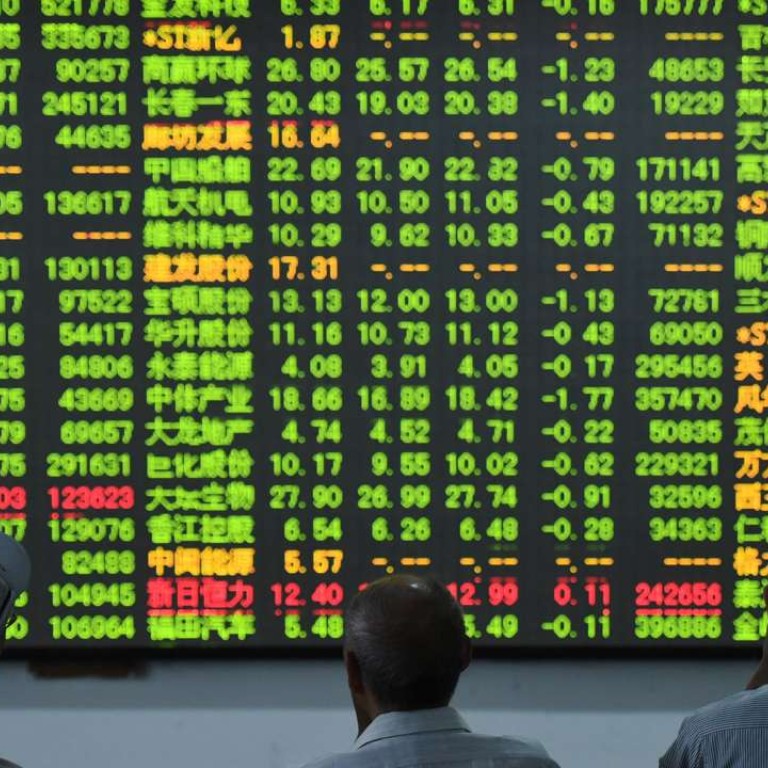
Communist Party mouthpiece quotes China Daily as ‘foreign media’ to reassure public over slowing economy
People’s Daily front page refers to sponsored report produced by another state newspaper to boost public confidence in Chinese economy
Just how far will the Communist Party’s propaganda machine go to reassure its people that the Chinese economy is heading towards a glorious future, despite losing growth momentum?
Using its mouthpiece to quote another official state media as “foreign media” to back the economy seems to be a new yardstick.
Wednesday’s front page of the top party mouthpiece People’s Daily quoted “foreign media” to help boost confidence in the “new normal” of China’s slower economic growth, but the line was actually taken from the China Daily, an official English-language state-run newspaper.
The quoted line said: “Unlike the so-called new normal of jobless recovery in many Western countries after the 2008 global financial crisis, Chinese policymakers have adopted the phrase to define a crucial development stage toward the fulfilment of the country’s two centennial goals: building a moderately well-off society by 2021 and becoming a fully developed nation by 2049.”

Whether the words “foreign media” were used to deliberately cover up the source, or simply an editorial accident are not known.
The People’s Daily article, a long piece hailing the “new status, new position and new stage” of its economy, attributed the line to an unidentified “foreign media”.
Yet the line was translated word-for-word from a China Daily report in English, published under the “China Watch” section on the website of British newspaper The Daily Telegraph in April 2015.
On the webpage, a declaration in capital letters, high above the article’s headline, said: “This content is produced and published by China Daily, People’s Republic of China, which takes sole responsibility for its contents.”
The section is part of Beijing’s global soft power push to insert or even embed propaganda materials into foreign publications via various cooperation and partnership deals.
The China Watch supplement is a sponsorship deal that allows the Telegraph to carry articles from China Daily in its newspaper and also online, according to The Guardian newspaper in Britain.
It is also circulated with The Washington Post and The Wall Street Journal in the United States, The Sydney Morning Herald in Australia, Le Figaro in France and several other newspapers around the world, according to a China Watch article.
In a bid to improve its international image, China has aggressively beefed up propaganda abroad and invested heavily in the state media’s foreign-language divisions, which target foreign readers and audiences.
Apart from the Telegraph’s cooperation with the China Daily, British news website Mail Online has teamed up with the People’s Daily, swapping up to 40 stories a week, the Guardian reported.
The Communist Party has long had a love-hate relationship with Western media.
It blames Western media for misrepresenting China and giving the country a negative, distorted image overseas. Most foreign media websites are blocked in China.

